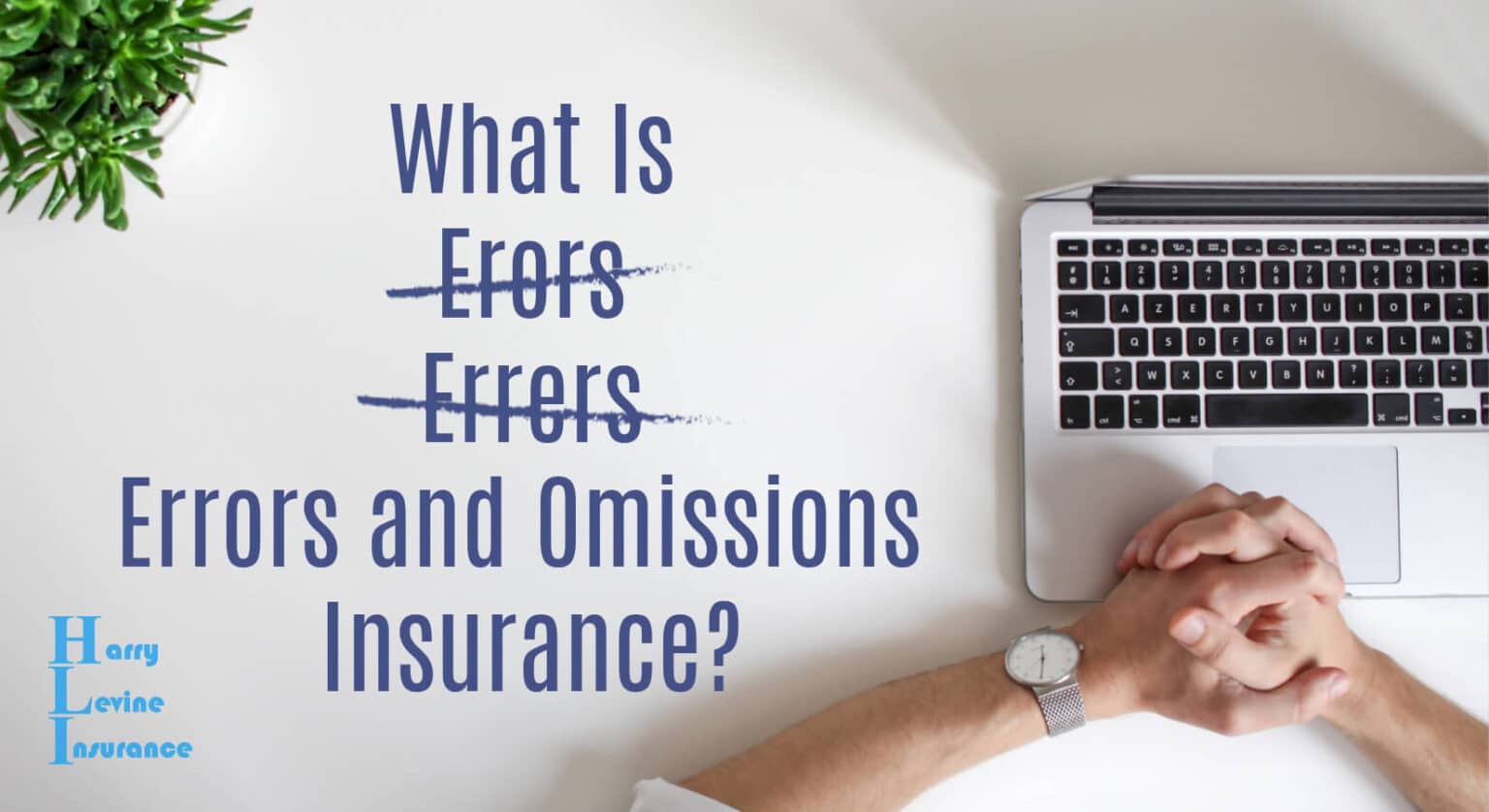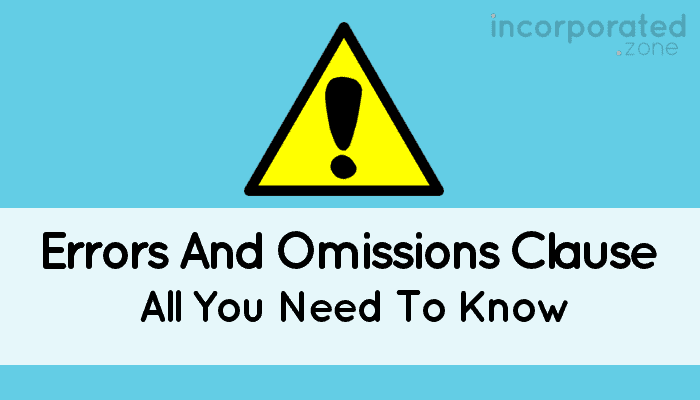Errors and omissions insurance for bookkeepers is a crucial aspect of financial protection in the professional world. This coverage ensures that bookkeepers are safeguarded in case of any mistakes or oversights, providing peace of mind and security for their business ventures. Dive into the details of this vital insurance offering to understand why it’s a must-have for bookkeepers.
Explore the various facets of errors and omissions insurance, from its coverage specifics to real-life examples of its importance in protecting bookkeepers from potential liabilities.
Overview of Errors and Omissions Insurance for Bookkeepers
Errors and omissions insurance, also known as professional liability insurance, is designed to protect bookkeepers from financial losses resulting from mistakes or negligence in their work. This type of insurance provides coverage for legal expenses, settlements, or judgments that may arise from claims of errors, omissions, or inadequate work performance.
Purpose of Errors and Omissions Insurance
Errors and omissions insurance is essential for bookkeepers to safeguard their businesses against potential liabilities stemming from errors in financial reporting, mismanagement of accounts, or failure to meet client expectations. Without this coverage, bookkeepers could face significant financial repercussions in the event of a lawsuit.
- Example 1: A bookkeeper accidentally records the wrong transactions, leading to discrepancies in the client’s financial statements. Errors and omissions insurance would cover the costs associated with rectifying the mistakes and any resulting legal claims.
- Example 2: A bookkeeper fails to file tax returns on time for a client, resulting in penalties and fines. Errors and omissions insurance would cover the financial losses incurred by the client due to the bookkeeper’s oversight.
Coverage Offered
Errors and omissions insurance typically covers legal defense costs, settlements, and judgments related to claims of professional negligence, errors, or omissions. It also provides coverage for damages caused by breaches of contract, failure to deliver services as promised, or inaccurate advice given to clients.
It is crucial for bookkeepers to have errors and omissions insurance to protect their businesses and reputations in the event of unforeseen errors or mistakes.
Importance of Errors and Omissions Insurance
Errors and Omissions Insurance is a crucial investment for bookkeepers as it provides financial protection in case a client holds them responsible for mistakes, negligence, or omissions in their work. This type of insurance can cover legal fees, settlements, and damages that may arise from such claims, helping bookkeepers safeguard their business and reputation.
Comparison with Other Types of Insurance
Errors and Omissions Insurance differs from General Liability Insurance in that it specifically covers professional mistakes and negligence rather than physical injuries or property damage. While General Liability Insurance is important for overall protection, Errors and Omissions Insurance is tailored to address the unique risks that bookkeepers face in their day-to-day operations.
Statistics and Case Studies
- According to a study by the American Institute of Certified Public Accountants (AICPA), around 30% of malpractice claims against accountants and bookkeepers are related to errors or omissions in their work.
- A case study from XYZ Accounting Firm revealed that a bookkeeper’s innocent oversight led to a significant financial loss for a client. Without Errors and Omissions Insurance, the bookkeeper would have had to pay out of pocket for the damages, putting their business at risk.
Common Claims Covered by Errors and Omissions Insurance: Errors And Omissions Insurance For Bookkeepers
Errors and omissions insurance for bookkeepers is designed to protect professionals in case of mistakes or negligence in their work. Let’s explore some common claims covered by this type of insurance.
1. Data Entry Errors, Errors and omissions insurance for bookkeepers
Bookkeepers may accidentally enter incorrect numbers or information into financial records, leading to discrepancies. Errors and omissions insurance can cover any resulting financial losses or damages.
2. Failure to Meet Deadlines
If a bookkeeper fails to meet important deadlines for submitting financial reports or tax documents, it can result in penalties for their clients. Errors and omissions insurance can help cover any resulting legal fees or penalties.
3. Misclassification of Expenses
Misclassifying expenses can lead to inaccurate financial statements, which can have serious consequences for a business. Errors and omissions insurance can provide protection in case a client sues for financial losses due to misclassification errors.
4. Failure to Detect Fraud
If a bookkeeper fails to detect fraudulent activities within a client’s financial records, it can result in significant losses for the business. Errors and omissions insurance can help cover the costs of legal defense in case of a lawsuit related to failure to detect fraud.
Cost and Considerations

When it comes to errors and omissions insurance for bookkeepers, the cost can vary depending on several factors. Bookkeepers should consider these key points to make an informed decision and potentially lower their insurance expenses.
Factors Influencing Cost
- The level of coverage required: Bookkeepers who need higher coverage limits will typically pay more for their errors and omissions insurance.
- Claims history: Bookkeepers with a history of claims may face higher premiums due to the increased risk they pose to insurance providers.
- Business size and revenue: The size and revenue of a bookkeeping business can impact the cost of insurance, with larger businesses often paying more.
- Location: The geographic location of a bookkeeping business can affect insurance costs, as certain areas may have higher risk factors.
Tips for Reducing Costs
- Implement risk management practices: By having strong risk management procedures in place, bookkeepers can reduce the likelihood of claims and potentially lower their insurance costs.
- Compare quotes: It’s essential for bookkeepers to shop around and compare quotes from different insurance providers to find the best coverage at a competitive price.
- Consider a higher deductible: Opting for a higher deductible can lower monthly premiums, but bookkeepers should ensure they can afford the deductible in the event of a claim.
Selecting a Policy
- Coverage specifics: Bookkeepers should carefully review the coverage details of each policy to ensure it meets their specific needs and provides adequate protection.
- Policy exclusions: Understanding what is not covered by the insurance policy is crucial to avoid any surprises in the event of a claim.
- Insurance provider reputation: Choosing a reputable insurance provider with a track record of excellent customer service and claims handling is essential for bookkeepers.
How to Obtain Errors and Omissions Insurance

When bookkeepers are looking to obtain errors and omissions insurance, there are specific steps they need to follow to ensure they are adequately covered.
Documentation Required for Applying
When applying for errors and omissions insurance, bookkeepers will typically need to provide certain documentation to the insurance provider. This may include:
- Evidence of professional qualifications and certifications
- Details of the services offered and clients served
- Information on previous claims or lawsuits, if any
- Financial statements or proof of assets
Choosing a Reputable Insurance Provider
It is crucial for bookkeepers to select a reputable insurance provider when seeking errors and omissions coverage. Some tips to consider include:
- Researching the insurance company’s reputation and financial stability
- Reading reviews and testimonials from other clients
- Ensuring the provider has experience in offering errors and omissions insurance to bookkeepers specifically
- Comparing quotes and coverage options from different providers to find the best fit
End of Discussion

In conclusion, errors and omissions insurance for bookkeepers stands as a cornerstone in ensuring financial security and peace of mind in the face of professional risks. By understanding the nuances of this insurance coverage, bookkeepers can navigate their careers with confidence and resilience.
Clarifying Questions
What does errors and omissions insurance for bookkeepers cover?
Errors and omissions insurance typically covers legal fees, settlements, and judgments that result from claims of professional negligence or mistakes made by bookkeepers.
How can bookkeepers reduce the cost of errors and omissions insurance?
Bookkeepers can lower their insurance costs by maintaining a clean claims history, implementing risk management practices, and choosing higher deductibles.
Is errors and omissions insurance the same as general liability insurance for bookkeepers?
No, errors and omissions insurance specifically covers professional mistakes or negligence, while general liability insurance focuses on bodily injury, property damage, and advertising injury claims.
Can errors and omissions insurance protect bookkeepers from claims of financial mismanagement?
Yes, errors and omissions insurance can provide coverage for claims related to financial mismanagement, provided that the policy includes such protections.
